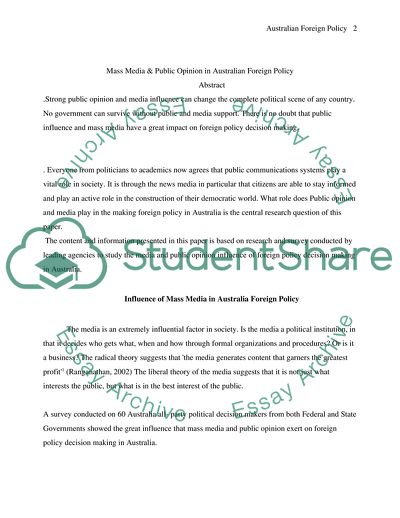Cite this document
(Influence of Mass Media in Australia Foreign Policy Term Paper, n.d.)
Influence of Mass Media in Australia Foreign Policy Term Paper. Retrieved from https://studentshare.org/social-science/1707892-mass-media-public-opinion-in-australian-foreign-policy
Influence of Mass Media in Australia Foreign Policy Term Paper. Retrieved from https://studentshare.org/social-science/1707892-mass-media-public-opinion-in-australian-foreign-policy
(Influence of Mass Media in Australia Foreign Policy Term Paper)
Influence of Mass Media in Australia Foreign Policy Term Paper. https://studentshare.org/social-science/1707892-mass-media-public-opinion-in-australian-foreign-policy.
Influence of Mass Media in Australia Foreign Policy Term Paper. https://studentshare.org/social-science/1707892-mass-media-public-opinion-in-australian-foreign-policy.
“Influence of Mass Media in Australia Foreign Policy Term Paper”. https://studentshare.org/social-science/1707892-mass-media-public-opinion-in-australian-foreign-policy.


